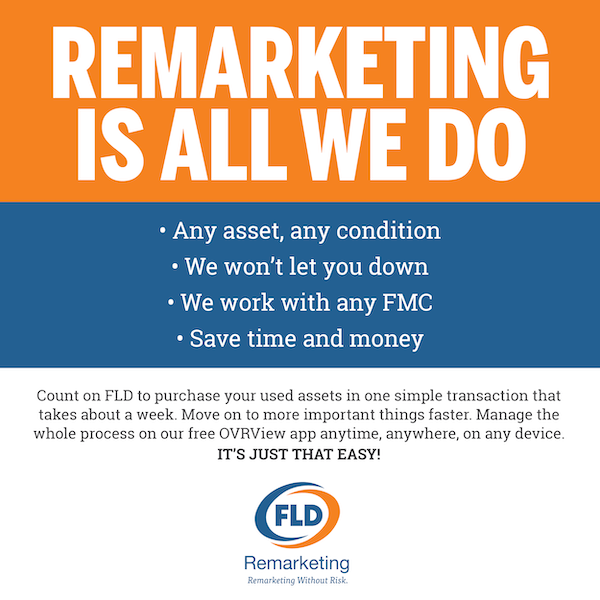
By Mark Boada, Senior Editor
Fleet managers around the world, take note: you are about to enter the most innovative and tumultuous period the automotive world has experienced since the invention of the internal combustion engine, and you need to start preparing yourself for it now. Be ready to change your identity from “fleet manager” to “manager of mobility.”
That’s the message from Lukas Neckermann, a London-based consultant and author of two highly regarded books, The Mobility Revolution and Corporate Mobility Breakthrough 2020.
Neckermann is the keynote speaker later this month at NAFA Fleet Management Association’s International Fleet Academy (IFA) in Tampa, Florida. The IFA will be held on Monday, April 24, the day before NAFA’s annual four-day Institute & Expo opens at the Tampa Convention Center.
Neckermann’s subtitle for his first book Mobility Revolution – Zero Emissions, Zero Accidents, Zero Ownership – establishes his top-level perspective: the world is coming to believe that cars are driving climate change, kill and injure too many people, and are too costly to own. But rather than being a prophet of doom, Neckermann sees digital and automotive technology coming to the rescue in ways that are going to hit a number of industries and the fleet world — not just rapidly, but “like a tsunami,” a tidal wave that is going to spin our heads. What’s more, as he documents, it has already started.
As Neckermann sees it, gasoline and diesel engines will soon be replaced by electric and hybrid powertrains, driven by demands by consumers and governments to major improvements in air quality. The government of Norway, for example, has decreed that no cars in that country will be fossil-fueled by 2030, and the same prohibition will apply to trucks by 2035. But, Neckermann says, even China, where its cities are among the most polluted on the planet is intent on going electric and is making major investments in electric powertrains. In addition to being cleaner, electric and hybrid powertrains are cheaper to run and, in quantity, cheaper to buy as well as to maintain.
A parallel revolution, and one that is being ushered in by the focus on automotive electronics, is the move toward self-driving vehicles. Bit by bit, elements of the fully autonomous vehicle are being adopted by carmakers, driven by public demand that travel by car be made safer. For example, led by Toyota, some 22 carmakers have committed to offering forward crash avoidance systems with automatic emergency braking as standard equipment by 2022.
It’s a big leap from that development to fully self-driving cars, but Neckermann is optimistic it will occur not many years after 2022. For one thing, he says public opinion is already shifting from “I don’t want to share the road with robots” to “I don’t want to share the road with other human drivers,” because drivers are the weakest link in highway safety.
He also says that self-driving auto software development is proceeding quickly, being worked on by dozens of carmakers and high-tech firms. Envisioned are future vehicles not just capable of replacing human drivers, but of being true “smart cars,” equipped with artificial intelligence that learns from experience and minimal driver input, and acting on information from other vehicles and highway infrastructure to avoid accidents and change routes to avoid traffic jams.
The safety benefits, he believes, will be prodigious. He cites a study that when 90% of all vehicles are on the road, U.S. traffic collisions could be reduced from 5.5 million to 1.3 million, and traffic fatalities from 2014’s 32,400 to 11,300 – and says he believes those numbers are conservative. The U.S.’s National Highway Traffic Safety Administration estimates the average business cost of a fleet accident to be $24,000. Delivering safety benefits anywhere close to those envisioned means that fleets, in the aggregate, could be saving more than a trillion dollars in accident costs a year.
Another incentive for fleets to embrace autonomous vehicles is an increase in productivity. Instead of driving, employees on their way to and from appointments could be doing work on their laptops. Neckermann says if U.S. fleets switch, their sponsoring organizations could gain some $1.3 trillion a year in improved productivity. Globally, he says the estimate is $5.5 trillion.
These developments will take some heavy lifting for fleets to adopt, but they will solve major challenges. The real mind-blowing change, though, will come from a transition from transportation being obtained from owned or leased vehicles to ride-sharing and, even more dramatically, car-sharing.
Over the next decade, Neckermann sees the fleet function being swept up in the sharing economy. The trend is being driven, to a great extent, by Millennials, the children of Baby Boomers, who Neckermann says will comprise the majority of the global workforce by 2020. Unlike their parents, they’ve grown up with digital technology and devices, and are shunning car ownership. They’re the growing market for ride-sharing outfits like Uber and Lyft, and their rapid growth has led to the creation of burgeoning business-to-business car sharing companies, like Zipcar and Enterprise CarShare in the U.S. and Ubeeqo in Europe.
Neckermann sees car and delivery truck fleets moving away from ownership to vehicle sharing, pushed by higher management for its significant cost savings. It will also mean that the prime focus of fleet managers will no longer be Total Cost of Ownership – TCO – but Total Cost of Mobility, or TCM. In this, fleets will be held to the same metric standards as corporate travel departments.
So, here’s one man’s view of your future, fleet managers. Radically different kinds of vehicles, fewer accidents to respond to and pay for, and an entirely different way of managing your function. Are you ready to make the changes? It’s looking like you may not have a choice.




